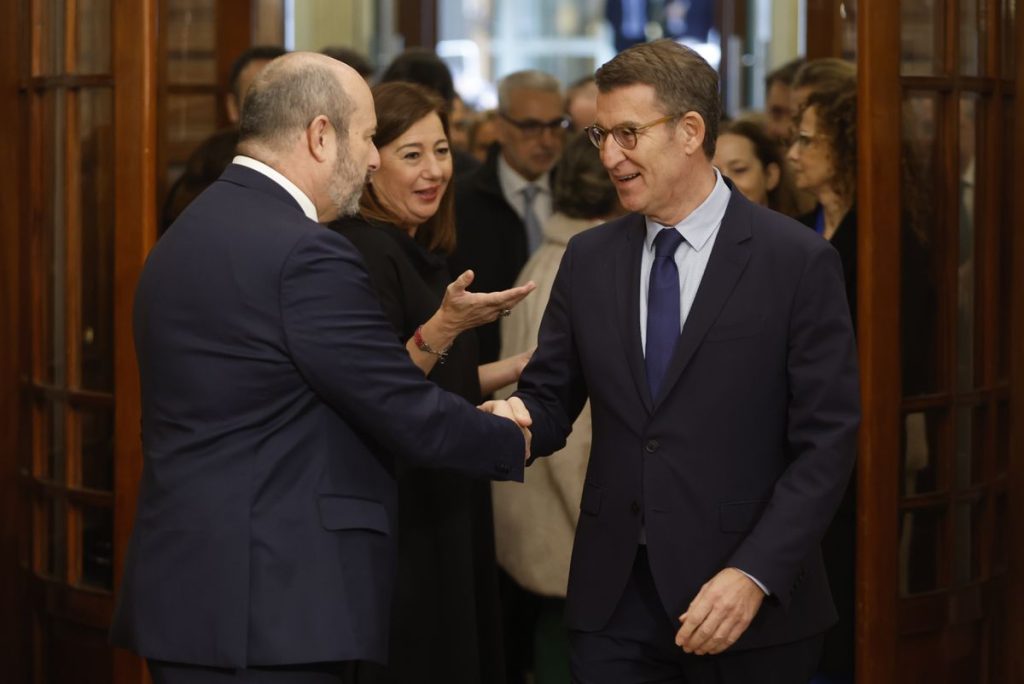The Congress Table has approved to enable the month of January to accelerate the preparatory debates of the amnesty law and expedite its procedures as much as possible. The government and its allies, who have a majority in the chamber’s governing body, intend to hold the full debate on January 9th, but during those days, the Congress will be under construction. The president, socialist Francina Armengol, has requested the Senate president, Popular Pedro Rollán, to lend the upper house’s chamber for that session. The government and the Spanish Socialist Workers’ Party (PSOE) have indicated that they will only accept minor “technical improvements” to the partial amendments of the project, in order to not distort the content of the already carefully measured law.
January, along with July and August, is typically not a working month for most parliamentary tasks and debates. However, the Congress Table often breaks this rule for exceptional matters, validation of decrees or urgent laws, or due to political necessity. The government, the PSOE, and their partners have cited all these reasons to declare the upcoming January as a working month from a parliamentary perspective, and they have pointed out that, in addition to the amnesty law, there will be other matters of interest such as the approval of the budget ceiling or the ratification of an omnibus decree from the government related to European funds and the crisis in Ukraine. Additionally, all government ministers will begin to appear before their respective committees in the third week of January as they start their term.
The Popular Party (PP), as denounced by their new spokesperson in Congress, Miguel Tellado, believes that enabling January is a way for the government to hide these debates around the Christmas holidays. Tellado reiterated their strong criticisms of the law and Pedro Sánchez, stating that the PP will do everything possible to disrupt the project. This strategy has put the government and the President of Congress on alert about how the Popular Party could obstruct the upcoming procedures. The deadline to submit amendments to the entire amnesty law project begins on December 23rd and ends on January 3rd, with the PP and Vox expected to register them. The next step should be the debate of these amendments in plenary.
The Congress had previously scheduled January for a series of works in the chamber to modernize the voting system and speakers with touch-screen tablets, rendering the room out of service. The lower house president, Francina Armengol, asked the Senate president, Pedro Rollán, to provide the chamber for the debate, and initially, there was no opposition, according to parliamentary sources. However, given the recent clashes between the government and the PP, cooperation cannot be guaranteed. If the plenary session is held, the project should then be sent to the subcommittee and the commission, in this case, the Justice Commission of the Congress, for the discussion of partial amendments there during January. In February, it would be discussed in plenary again and then sent to the Senate, where the PP, with an absolute majority, could delay its final approval for a couple more months.
The Congress Table has also agreed that the debate on partial amendments will take place in the Justice Commission, not the Constitutional Commission. This decision undermines the accusations made by the PP in recent weeks against Armengol for the alleged removal of the legal counsel of that commission, Manuel Fernández-Fontecha, who was moved to another position and supposedly had publicly expressed opposition to the amnesty. The legal advisors for the Justice Commission are Piedad García-Escudero, sister of former PP President of the Senate Pío García-Escudero, and Isabel Revuelta, former technical general secretary of the Ministry of Defense under popular Federico Trillo’s mandate. Minister of Justice, Presidency, and Relations with the Courts, Félix Bolaños, as well as PSOE spokesperson in Congress, Patxi López, confirmed on Tuesday that they have no intention of allowing significant changes to the amnesty bill, but rather minor “technical improvements” to a carefully measured law that they do not want to distort, anticipating possible challenges at the Constitutional Court.


